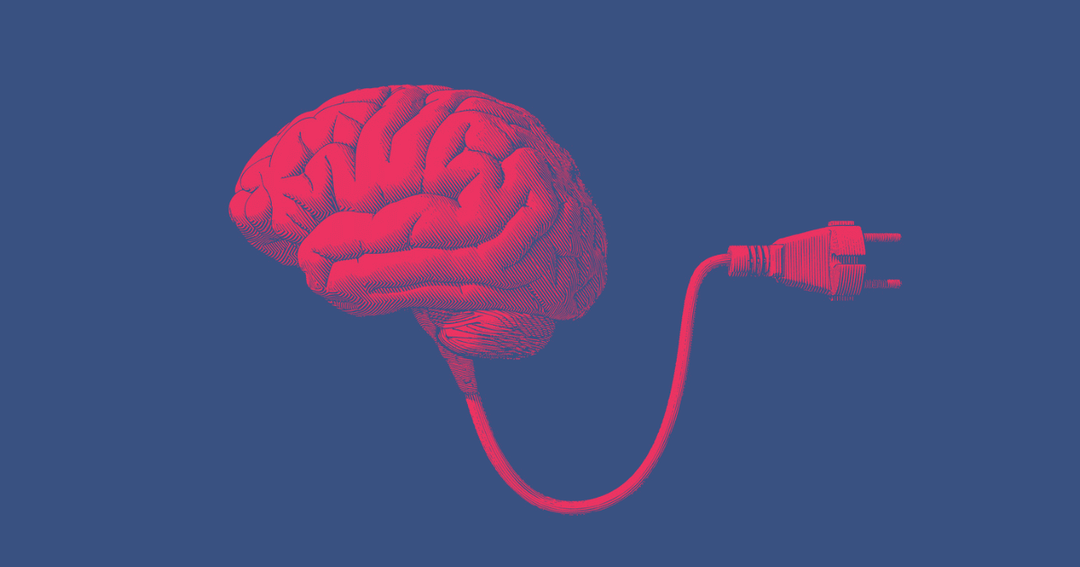Sleep Debt: What Does It Really Mean for Your Well-Being?

Most of us are familiar with the struggle of juggling work, family, and life's demands—all while trying to get a good night's sleep. However, did you know that a significant number of Americans aren’t getting enough sleep? In fact, according to the CDC, 1 in 3 adults experience sleep deprivation by consistently falling short of the recommended sleep duration.
This can lead to potentially serious consequences for both physical and mental health. This ongoing lack of sleep can contribute to accumulating sleep debt. Think of it like borrowing from your future well-being—those debts eventually need to be repaid. But how much sleep do we really need, and what happens when we consistently fall short?
What Is Sleep Debt?
Sleep debt is simply the difference between the sleep your body needs and the sleep you actually get. But how much sleep do we really need? While it varies slightly depending on individual factors, most adults thrive on 7-9 hours of quality sleep per night. Children and teenagers require even more. Every time you get even 30 minutes less than your personal sleep requirement, your sleep debt increases, leading to a state of sleep deprivation.
Whether it's staying up late to finish a work project, catching up on your favorite show, or scrolling through social media—those lost minutes quickly add up. Over time, this sleep deficit can significantly impact both your physical and mental health. In fact, sleep loss is closely linked to several effects of sleep deprivation on mental health, potentially increasing the risk of issues like anxiety and depression.
Also Read: Mental Health and Sleep
How Does Sleep Debt Accumulate?
Here's something many people don't realize about sleep debt: it accumulates over time, even if you only miss a little sleep here and there. It's similar to using a credit card: every time you forgo sleep, it's like adding to your balance. In fact, 73% of Americans report regularly failing to get the recommended amount of sleep, contributing to a nationwide sleep debt crisis.
If this pattern continues unchecked, the long-term effects of sleep debt, including the dangers of chronic sleep deprivation, become even more pronounced. Over time, this can significantly increase your risk of developing serious health conditions such as:
- Hypertension (high blood pressure)
- Diabetes
- Weight gain and Obesity
- Cardiovascular disease
- Cancer
- Chronic Pain
What Are the Signs of Sleep Debt?
You might believe you're getting enough sleep, especially if you don't always feel tired. However, our bodies can adapt to a lack of sleep without us realizing it, masking the signs of building sleep debt, which often manifests as symptoms of sleep deprivation. This doesn't mean we escape the consequences. Here are a few common signs of sleep deprivation that might indicate you're carrying a sleep debt, even if you don't feel completely exhausted:
- Daytime Fatigue: Do you find yourself reaching for another cup of coffee or feeling the urge to nap midday? These are clear signs from your body that you're not getting enough rest.
- Difficulty Concentrating: Are you having trouble focusing, remembering things, or making decisions? Sleep debt might be to blame.
- Mood Swings: Sleep deprivation often leads to irritability, moodiness, and a shorter fuse. Feeling frustrated more easily than usual? It could be a sign you need more sleep.
- Weakened Immune System: Adequate sleep is vital for a healthy immune system. When you're sleep-deprived, you're more vulnerable to getting sick.
Also Read: 5 Signs You Have Broken Sleep—And How to Fix It Naturally
What Causes Sleep Debt?
It's easy to see why sleep gets pushed aside, but understanding WHY we lose sleep is the first step toward getting the rest we need. Addressing these causes can prevent the build-up of sleep debt and reduce sleep deprivation.
Here are some common signs of sleep debt:
- Packed Schedules: Work, family, friends, hobbies—it's easy to fill our days to the brim. However, all those commitments can leave little time for a full night's sleep.
- Underlying Medical Conditions: Sometimes, sleep debt isn't entirely in our control. Medical conditions like insomnia, sleep apnea, and restless leg syndrome can make it challenging to get quality sleep. If you suspect a medical condition might be affecting your sleep, talk to your doctor.
- Stress & Anxiety: Nearly 8 out of 10 adults report experiencing physical symptoms of stress. It's no surprise that stress takes a toll on our sleep, too. When your mind is racing with thoughts, it's much harder to fall asleep and stay asleep.
- Poor Sleep Habits: Those late-night Netflix binges, scrolling on your phone in bed, or enjoying a cup of coffee too close to bedtime can all disrupt your sleep patterns and contribute to sleep debt.
Can You Really Catch Up on Lost Sleep?
Many people wonder if it's possible to fully recover from sleep debt, especially when those lost hours of sleep feel like they're piling up. The encouraging answer is YES—you can typically recover from sleep debt, and in turn, reduce the effects of sleep deprivation. Your body has an amazing ability to heal and rebalance itself.
However, it's important to understand that true sleep debt recovery requires more than just one or two good nights of sleep, or even a weekend of sleeping in. Studies suggest that it takes four days to fully recover from one hour of lost sleep. So, how do we fix sleep debt and get back on track? Fortunately, there are proven tips for fixing sleep debt and restoring your body’s natural sleep rhythm.
While napping and sleeping in on weekends may help alleviate symptoms like fatigue or daytime sleepiness, they are often not enough to fully recover from sleep debt.
For instance, if you've accumulated a sleep debt of 10 hours, sleeping in for an extra few hours might make you feel a little more rested in the short term, but it won't erase the entire debt. It takes consistent effort and a commitment to healthy sleep habits to truly make a difference.
Also Read: 13 Tips to Fall Asleep Faster
How Can You Recover from Sleep Debt Quickly?
If you’re already feeling the effects of sleep deprivation, don’t worry – it’s not too late to get back on track. Recovering from sleep debt and improving your sleep habits is a journey, but you can start feeling better sooner by implementing these tips.
- Prioritize Catch-Up Sleep: One of the most effective ways to recover from sleep debt is to get more sleep.
- Gradually Increase Your Sleep Time: Rather than trying to catch up all at once, add 15–30 minutes to your sleep time each night. Continue gradually increasing your sleep duration until you’re consistently getting 7–9 hours.
- Become a Strategic Napper: Short, well-timed naps can work wonders. A 20-minute nap during the day can help boost your alertness without interfering with your nighttime sleep.
- Optimize Your Sleep Environment: To make the most of your sleep time, it's essential to create a peaceful and sleep-conducive space.
- Design Your Ideal Sleep Environment: Your bedroom should be your sleep sanctuary. Keep it dark, quiet, and cool. Invest in blackout curtains, earplugs, or a white noise machine to block out any sleep-disrupting distractions.
- Address Underlying Causes: Remember those everyday habits that might be keeping you up at night? Addressing them can significantly aid in reducing your sleep debt.
- Limit Stimulants Before Bed: Avoid caffeine and alcohol for several hours before bedtime. These substances can interfere with your sleep cycle and make it harder to fall asleep and stay asleep.
- Get Moving During the Day: Regular exercise can promote better sleep. However, it's best to avoid intense workouts too close to bedtime. Aim for at least 30 minutes of moderate-intensity exercise most days of the week.
- Consider Natural Solutions: If lifestyle changes aren’t enough, you might explore natural sleep aids like Sip2Sleep® to support restful sleep. Sip2Sleep® is a natural sleep aid, carefully formulated with clinically proven ingredients to promote deep, restful sleep, and can be a good option for those seeking safe and effective melatonin alternatives.
Getting enough sleep is essential for a healthy and happy life. By prioritizing sleep and making simple changes to your routine, you can improve your sleep quality, boost your energy, and enhance your overall well-being.
Ready to prioritize your sleep and wake up feeling refreshed and revitalized? Sip2Sleep® can help you achieve the restful sleep you deserve.
Visit our website to learn more and order yours today!
Disclaimer: This article is for informational purposes only and should not be considered medical advice. Always consult with a qualified healthcare professional before making any changes to your diet, sleep habits, or health routine, especially if you have any underlying medical conditions.







